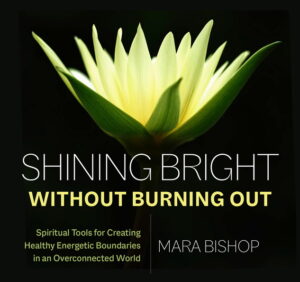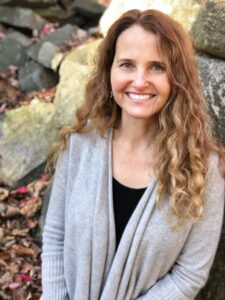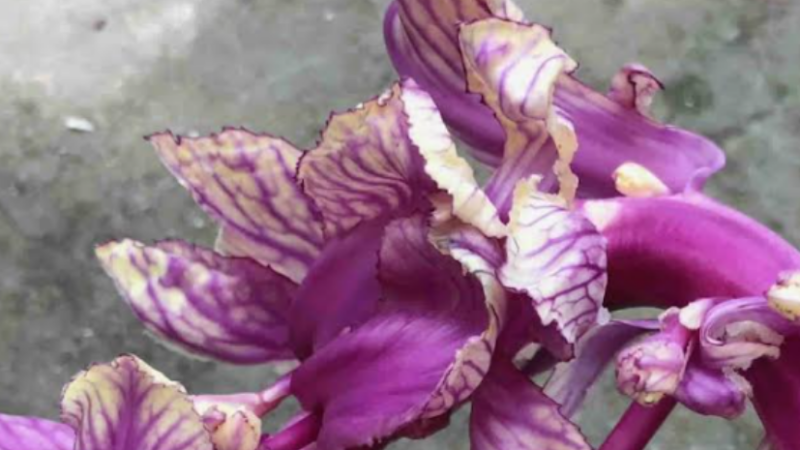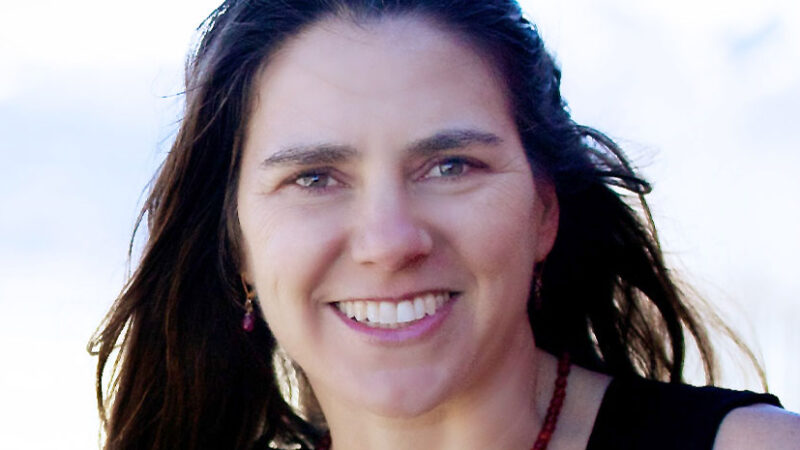
Enjoy this second installment in our new mini-series of Befriending Yourself, written by Jeff Foster and Matt Licata. Want to go deeper? Join their free webinar on Wednesday, June 5! Be sure to register here.
In our previous excerpt (which you can view here if you missed it!), we discussed the first two principles of befriending yourself:
- STOP TRYING TO BE HAPPY (happiness is not something you can “do”)
- TRUE MEDITATION IS NOT WHAT YOU THINK (it’s what you are)
And now, we move on to Principles 3 and 4…
3. “ONE MOMENT AT A TIME” (this one idea could save your life)
Don’t forget, befriending “what is” can only happen one moment at a time.
Actually, that’s all we ever have to face. A single present moment. Life is never truly bigger or more overwhelming than that. Present sounds, sensations, images, urges, impulses, fantasies, feelings, thoughts… we only ever have to process, digest or “deal with” a single instant of life.
Nothing more, nothing less.
Take some time to become curious about what you’re experiencing in a given moment of activation or trigger or stress, instead of shaming or blaming yourself (or others). Don’t abandon the moment when you need yourself more than ever.
Slow down, breathe deeply, open your senses, and acknowledge that you’ve become hooked, triggered, or thrown off center. You have to start by telling the truth of the moment, even if that’s humbling (which it often will be!). Start with, “I’m feeling overwhelmed,” or “I’m feeling really sad,” or “I feel completely lost and exhausted.” Know that this, too, is a holy moment, an invitation to meet yourself in a new way and to flood your experience with loving awareness. An invitation into that alchemical middle territory where the opposites (good and bad, right and wrong, sacred and profane) dance, where we discover the wisdom of immediate experience, and open to a new more creative response.
This “new, creative response” – choosing differently in a moment of overwhelm and activation – is what in neuroscience is referred to as neuroplasticity, that capacity of the brain to form new synapses, to encode new pathways, to rewire. Slowly, over time, as we familiarize ourselves more and more with this middle territory in between the extremes of denial and flooding, finding an “intimacy without fusion,” we begin to make new choices, fostering the miracle of neuroplasticity and the unlimited capacity of the human person to renew itself. This process, while having a scientific foundation, is in fact sacred, the expression of an outrageous sort of grace.
You don’t need to “be present” all day. Or even for a few minutes.
Don’t make “being present” into any kind of goal.
You only need to be present to a single moment.
Now.
It is essential to remember that staying with yourself for very short periods of time is what brings lasting transformation and change. We don’t need to “get in there” and resolve or root out our difficult experience, transcend, or purge it from our systems. This urge to “get to the root of it” (and quickly) is usually an enactment of earlier patterns of self-aggression and only reinforces in the nervous system that there is truly “something wrong.” By “very short periods of time,” we really do mean for a few seconds. For in that “few seconds” a revolution is born.
Over time, that “few seconds” very naturally expands, grows, and evolves on its own, organically as a byproduct of tending to ourselves in a new way, not from an urgent sense that something is wrong which must be fixed or healed very quickly. Trauma and other difficult experience can only unwind in an environment of love, of slow tending, of kindness. Yes, we can push ourselves a little, for a second or two more than might seem comfortable, for this will help us to build our tolerance and craft a scaffolding of love. But no more than that. Otherwise, we’ll just send ourselves outside our “windows of tolerance” and into overwhelm, retraumatization, all the while reinforcing the requirement that we meet future experience with fight-flight-freeze responses.
In other words, when you resist your experience, even very subtly by “trying” too hard to “be present” with it or even “accept” it, you’re still telling the body, there’s an enemy here, something I’m trying to get rid of. When you slow down and go baby steps, moment by moment, you’re telling the body, it’s okay, I’m safe, this is uncomfortable and intense but I’m present with it, I’m safe. Once this requisite safety and resourcing is built into the nervous system – which happens slowly, one second at a time – then we can more organically, effectively, and compassionately begin to open our hearts to our pain, touch it with deeper levels of warmth, presence, and love, eventually even discovering that our pain is a true friend, an ally on the journey. But we cannot skip stages! We cannot just move straight to acceptance, forgiveness, and love from a field that is unsafe. It is an act of kindness and self-compassion to remember this and to honor where we are. While the mind may tell us, “Oh, just one or two seconds, big deal, can’t you do more than that? That’s not enough, you’ll never heal, you’re going too slowly, you’re falling behind, you’ve failed yet again,” in the reality of the nervous system and the heart, one second is the fertile soil of revolution.
Healing is not a competition. Remember, there is never any goal. There is no urgency on the path of love.
In the field of trauma, “titration” refers to tending to our difficult thoughts, feelings, and raw bodily sensations for a few seconds at a time, then stopping and shifting into a moment of self-nourishment and self-care, and then returning later, when we are ready. Pushing ourselves just a little, nudging ourselves gently into the dark and scary places, but not so much that we fall into overwhelm and flooding or dissociation.
Baby steps are courageous in this work and the material of revolution.
Moment by moment, even our dark and scary experience is bearable.
We cannot tend to the next moment’s pain and intensity, for that is truly overwhelming! We cannot “bear” a future moment of grief or loneliness. Just as we cannot experience or surrender to tomorrow’s sunrise, we cannot tolerate tomorrow’s – or even the next moment’s – fear or sorrow or pain. But we can come to see that this moment’s experience is workable. We can come out of tomorrow’s sadness, the next moment’s depression, and next week’s heartbreak into what is truly here now, which may be a lot more workable and tolerable than you think, not as devastating as you imagine, and in reality only a part of you that longs for a moment of your loving awareness.
A great inner confidence and trust and even joy can build from this. The joy of being alive and knowing we can meet anything life throws at us with courage and breath, slowness and presence. The joy of knowing that the Now is our true home and refuge. The joy of knowing that there is no such thing as a truly “unbearable” moment.
4. SUFFERING IS OPTIONAL (but sometimes pain and grief are inevitable)
What is worse, our pain… or our attempts to escape it (thereby making the pain into an internal enemy, mistake, or error)?
What is worse, our loneliness, fear, or sorrow… or our longing to be free from them, to get rid of them, to purge them from our being?
What is more painful, our pain, or our resistance to it, our refusal to experience it, the ways in which we hurt ourselves (and others) trying to numb ourselves from it? Abandoning ourselves in a moment when we long for true care?
What is worse, our difficult feelings, or the conclusions we’ve come to about what these experiences mean, the voices in the head about what these feelings say about us as a person (“I’m weak, I’m broken, I’m flawed, I’m damaged, I’m not whole, there’s something wrong with me…”) – the ways in which we judge ourselves for being the way we are?
What is worse, the rain as it falls, or our refusal to get wet?
We have come to believe that very ordinary human emotions, thoughts, and urges are in and of themselves the cause of our suffering and struggle. But is it the mere appearance of anger, sadness, disappointment, jealousy, uncertainty, or confusion that is really the problem? Or is it the abandonment of ourselves in the moment when these experiences arise? The shaming and judging of our authentic experience? The habitual conclusions we’ve come to – from our families, cultures, even our spiritualities – about what these very ordinary human experiences mean about us, our value, our worth, our progress along the path?
To take some time in our lives – in our inquiry, meditation, journaling, pondering – and really explore – this is a great gift we can give ourselves (and others). Just what is the source of my struggle and suffering? Is it true that I must convert my sadness to joy, doubt to clarity, rage to happiness, disappointment to gratitude, etc. in order to know true freedom, or is it a more radical invitation I am being called to? To not take anyone’s word for it – including our own! – but to become an alchemist or archaeologist of our own inner world and see.
It can be incredibly liberating and life-giving to discover that the freedom we are longing for is not found from these difficult experiences, but actually in them, at their very core. We continue to be amazed, astonished, and surprised as we witness those we work with as they go into their experience and illuminate this territory – and can be awed at the transformation that many are discovering in this inquiry. As Rumi reminds us, “The cure for the pain is in the pain” – this is a very profound alchemical truth that the ultimate medicine we are seeking is found inside the very wound itself. No, we cannot understand or make sense of this with the mind. But the body knows. The heart knows.
We need not “get rid of,” cure, transform, shift, or “heal” our immediate painful experience in order to be fully alive, connected, and free. When we come to see that it is not the thoughts and feelings, but the process of self-abandonment (turning from ourselves in a moment of activation, stress, or overwhelm and falling into the extremes of denial, repression, dissociation, or engaging in habitual or addictive behavior to cover over our pain) that generates so much of our unnecessary suffering, a new world opens.
Remember, difficult feelings and thoughts are like quicksand. The more you struggle against them, the more they suck you in. As we all know, we can quickly fall down the “rabbit hole” of cascading and looping thoughts and feelings, linking them together and weaving a very convincing story of how we’ve failed, done it wrong, are unlovable, and how there is fundamentally something wrong with us. But slowing down, pausing, feeling our feet on the ground, breathing deeply from our lower belly, we open into a new world. Gently allowing the thoughts and feelings to be here, breathing into them, even if they are intense and uncomfortable. Yes, it may feel counterintuitive to do this, but with some practice, you may come to experience them within the context of a lot of space. Even if they do not “go away,” somehow they release you from their grip when you call off the war and allow them to come and go, as they will by their very nature. Strangely, they may actually be your path to freedom. Release through relaxation, not endlessly “working on yourself” and turning your life into one unending project of self-improvement. We can start to see how even our spiritual and therapy goals can be yet another expression or enactment of a deep and core belief in our unworthiness, where “more” work on ourselves, paradoxically, begins another way to abandon and avoid ourselves as we are.
Of course, a certain amount of pain – physical and emotional – is inevitable, as long as we are alive. But begin to investigate how much of your pain is actually unnecessary. How much of your pain is actually resistance to your pain, thinking about your pain, ruminating on your pain, judging your pain, and judging yourself for having pain. How much of your suffering is actually self-created? You only have to deal with a moment at a time.
We hope you enjoyed this second installment in our new mini-series of Befriending Yourself, written by Jeff Foster and Matt Licata. Want to go deeper? Join their free webinar on Wednesday, June 5! Be sure to register here.
ABOUT THE AUTHORS
JOIN JEFF FOSTER AND MATT LICATA EACH MONTH IN THEIR NEW “BEFRIENDING YOURSELF” MEMBERSHIP SITE: www.befriendingyourself.com

MATT LICATA
Matt Licata, PhD is a psychotherapist, writer, and independent researcher based in Boulder, Colorado. Over the last 25 years, he has been active in the ongoing dialogue between depth psychological and meditative approaches to emotional healing and spiritual transformation.
His psychotherapy and spiritual counseling practice has specialized in working with yogis, meditators, and seekers of all sorts who have come to a dead-end in their spiritual practice or therapy and are longing for a more embodied, creative, imaginative way to participate in their experience, in relationship with others, and in the sacred world.
Matt’s spiritual path and exploration has been interfaith in nature and includes three decades of study and practice in Vajrayana Buddhism, Sufism, Daoism, and Contemplative Christianity. His psychological training and influences have been in the larger field of relational psychoanalysis, Jung’s analytical and alchemical work, and Hillman’s archetypal psychology, to name a few. He is the editor of A Healing Space blog and author of The Path is Everywhere: Uncovering the Jewels Hidden Within You (Wandering Yogi Press, 2017) and the forthcoming A Healing Space: Befriending Yourself in Difficult Times (Sounds True, 2020). His website is www.mattlicataphd.com
JEFF FOSTER
Jeff Foster studied Astrophysics at Cambridge University. In his mid-twenties, struggling with chronic shame and suicidal depression, he became addicted to the idea of “spiritual enlightenment” and began a near-obsessive spiritual quest for the ultimate truth of existence. The search came crashing down one day, unexpectedly, with the clear recognition of the non-dual nature of everything and the discovery of the “extraordinary in the ordinary.” Jeff fell in love with the simple present moment, and was given a deep understanding of the root illusion behind all human suffering and seeking.
For over a decade Jeff has been traveling the world offering meetings and retreats, inviting people into a place of radical self-acceptance and “Deep Rest.” He has published several books in over fifteen languages. His latest book is The Joy of True Meditation: Words of Encouragement for Tired Minds and Wild Hearts (New Sarum Press, 2019). His website is www.lifewithoutacentre.com
 Order Shining Bright Without Burning Out now!
Order Shining Bright Without Burning Out now! 





